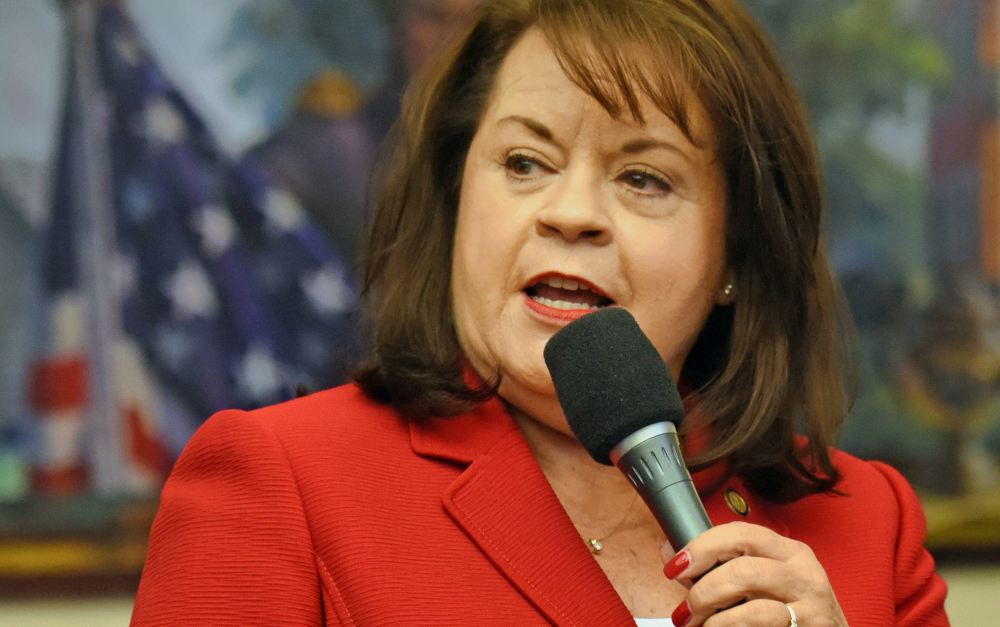The Florida State Senate Thursday unanimously passed a bill that would ban hemp-derived delta-8 THC and similar intoxicating hemp products.
In addition to delta-8, Senate Bill 1698 (SB 1698) would also specifically prohibit ingestible or inhalable products that contain delta-10 THC, HHC, THCA, THCP and THCV. All of those compounds are made by putting hemp-derived CBD through a synthetic process to produce highly concentrated substances that give users a “high.”
Passage likely
A companion bill under review in the state’s House of Representatives passed the Infrastructure Strategies Committee Thursday afternoon, and is headed for a vote. It is anticipated that Republican Gov. Ron DeSantis will sign the final unified bill into law.
The intoxicating hemp products emerged after the 2018 Farm Bill legalized industrial hemp and its downstream products nationally. But the measure created a loophole by not accounting for psychoactive products that can be made from hemp flowers, which produce the CBD base material.
The Senate version of the bill would also limit hemp products to 0.3% total delta-9 THC or 2mg THC per serving/10mg THC per container, whichever is less. Delta-9 is the most common form of THC found in higher concentrations in marijuana plants, but it also appears naturally in trace amounts in industrial hemp.
Marketing restrictions
In addition to the THC provisions, the law would expand restrictions on advertising, packaging, and marketing at events where hemp products are sold. Lawmakers specifically expressed concern over products that are packaged to mimic popular brand-name snacks, making them attractive to youth.
Provisions on making hemp products less attractive to children define those as “products that are manufactured in the shape or packaged in containers displaying humans, cartoons, or animals, toys or other features that specifically target children; manufactured in a form or packaged in a container that bears any reasonable resemblance to an existing candy or snack product that is familiar to the public.”
MORE: Industry’s failure to address intoxicating hemp products is height of irresponsibility
The bill also requires that organizers of hemp-themed events that host sellers ensure that each participating business is properly permitted, must provide the state Department of Agriculture with a list of those businesses, and must verify that their products are from an approved source.
SB 1698 would also give $2 million to the Florida Department of Law Enforcement for the purchase of testing equipment for products that might be seized.
‘Unanticipated’
“When we passed the hemp program, it was not in anticipation of highly intoxicated, sometimes psychoactive substances being ingested by Floridians,” Republican Sen. Colleen Burton, the bill’s sponsor, said on the Senate floor as SB 1698 went into discussion on Wednesday. “The concerns we have had over the potential misuses of this product I believe has exceeded our expectations.”
Democratic Sen. Tracie Davis on Thursday reflected bipartisan support for the measure.“We do need to add regulations . . . to protect Floridians, and I think that’s what you’re doing here, and I am eager to support this bill,” Davis said.
The bills enjoy the support of the Florida Department of Agriculture and Consumer Services.
Critics of the bills say their provisions would negatively affect nearly 500 growers and roughly 10,000 retail outlets in the state.
National problem
The intoxicating hemp products being targeted in Florida have proliferated throughout the country, with many producers and sellers having received warnings from the U.S. Food & Drug Administration (FDA) regarding their safety. FDA said it has received reports of serious adverse events from consumers, and at least one child’s death in Virginia was attributed to the consumption of delta-8 THC, the most popular of the hemp-derived synthetic compound.
The intoxicating hemp-derived cannabinoids appeared in the wake of the CBD boom and bust that followed passage of the 2018 Farm Bill. As the market for CBD quickly overheated and then collapsed, CBD producers began selling their pent-up supplies to the makers of the intoxicating hemp products, based on the loophole in federal law.
The 2023 Farm Bill was expected to address questions surrounding CBD and the intoxicating products that can be made from CBD. But the legislation was delayed until this autumn, meaning one more year of a muddled regulatory picture that leaves individual states to deal with the problem.

